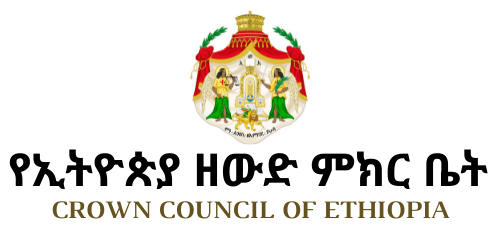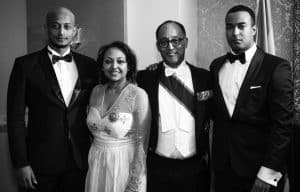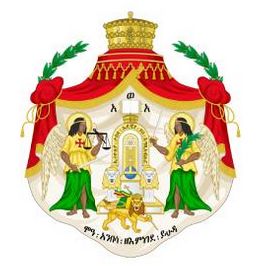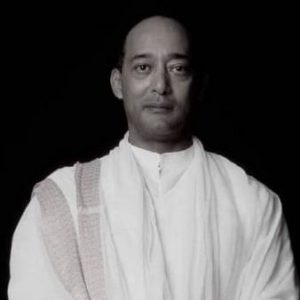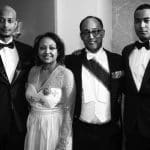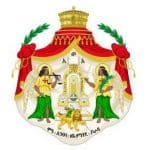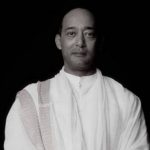Presented by His Imperial Highness Prince Ermias Sahle-Selassie Haile-Selassie, President of the Crown Council of Ethiopia, to the United States House of Representatives
In an age of democratic government and the rule of law, it is easy to forget that leadership and governance are not always synonymous terms, and that leadership is not merely the function of elections. Leadership is a quality which is created by the sense of duty; the development of respect; and the ties of honor, kinship, and geographic identity of the chosen representative of a society. The history of humankind has shown that successful, durable societies have always been led by individuals and institutions which have deep roots and abiding mutual love and trust with and within their communities.
No monarch or traditional leader — nor any elected government — long remains in office without the trust and respect of society. Thus, while it is easy to think of “traditional leadership” as unelected rule, the reality through history has been that traditional leaders must embody the interests and welfare of their society even more in many instances than elected leaders. Traditional leaders undertake a commitment for life, often without formal recompense, and they also often assume these duties because they were born to the task of being the servants of their societies.
My late and beloved Grandfather, His Imperial Majesty Emperor Haile Selassie I, understood the modern world, and moved to create a separation between the duties and obligations of the traditional leadership of the Solomonic dynasty on the one hand, and the role and duty on the other of an elected government which the people would put in place to administer the nation. Traditional leadership was always there to unite the people under a common identity, and a common set of values, and to ensure that there was always a champion for protection under a formal Constitution. It was there to ensure that there was continuity of society for the long history of a nation, in order to allow the governments to change to meet the changing wishes of society. So “traditional leadership” is not something which takes away from modern, elected governance, it is something which adds to it, and actually makes modern government more feasible, giving the population a sense of belonging with, and pride in, their civil institutions.
Traditional leadership has several key functions:
- To unite;
- To heal and reconcile;
- To inspire;
- To give prestige and honor to a society, in the eyes of that society and the world;
- To offer protection as a defender of Constitutional rights and values;
- To focus light on areas of need and to inspire compassion and contribution;
- To facilitate dialog between societies in a non-political framework;
- To sustain the great historical span of continuity of society so that government can reflect the day to day needs and aspirations of that society;
- To reflect ethical and spiritual values which make societies capable of hope, innovation, and productive service;
- To encourage a synergy of Consensus and Competitive Governance; and
- To encourage the efforts of the public and private institutions currently at play in the country and the diaspora.
So in an age where increased awareness of our common humanity is taking place, a greater knowledge of the role of traditional leadership needs to be more deeply examined.
Traditional leadership has been widely practiced around the world for millennia. In Africa, in particular, traditional leadership in its varied forms has been both temporal and spiritual. This great heritage has often kept societies united; often ruling or influencing by consensus, arbitration, and inspiration.
Today, unlike in the past, the role which traditional leadership provides has evolved. In an age where democracies are taking root, traditional leadership has been able to take a non-political role, often providing a sense of continuity and stability at grassroots level.
Today, I wish to examine in particular the role of traditional leadership as it pertains to Ethiopia, my homeland. Ethiopia today is more than a country or nation state in the sovereign sense. In the past 36 years or so, the Ethiopian people — with a history spanning some 5,000 years — have spilled over their borders. Today, because of civil war and strife, the Ethiopian diaspora has placed millions of Ethiopians in various countries around the world. And yet all of us in the Ethiopian diaspora retain strong cultural and human ties with our homeland. The Ethiopian people are increasingly becoming a “world people”, carrying with them traditions, language, religion, and values forged through the tenure of one of the oldest civilizations in the world.
Ethiopia is itself an icon. It is a state which was never submerged into a colonial entity, despite attempts to conquer it. Therefore, it has been a beacon of hope for many other states in Africa and elsewhere. It has been an immense pleasure to hear Ethiopia described by many Africans today as being “the property and pride of all Africa” because of the unique strength of its traditions.
Successive Ethiopian Emperors strove to make Ethiopia a nation-state in the modern, Western sense, yet without abandoning the wide range of cultural, linguistic, and religious traditions of the peoples of the Empire.
The Ethiopian revolution of 1974 had left many of us traumatized and polarized. I believe the foremost role of traditional leadership must be to heal these festering wounds. Without overcoming the legacy of the bitterness of the revolution we cannot move forward. Traditional leadership could become a vehicle and provide leadership whereby reconciliation can take a firmer root. A sense of trust, an anchor is important to guide a polity through difficult and unchartered waters without worrying about power and the next elections. Hence, its non-political role can be one of the engines which can move forward a sense of forgiveness, tolerance, and can build an impetus of common purpose for unity, mutual respect and prosperity.
The other role traditional leadership must play is also to become both a guardian and bridge to a nation’s history. History requires education. Children are not being taught in schools about their own history. This is a great disservice for future generations. Teaching history will give balance and understanding of one’s predicament. How can we expect the young generation to have identity and pride if they are not taught their own history. In a sense traditional leadership can be one vehicle whereby history can also come alive by inspiring the young to learn about themselves. Traditional leadership must inspire future generations to learn from their past. There is a great deal of wisdom from our traditions, oral history, and customs that can serve us well in conceiving a firmer and clearer future for ourselves.
We cannot underestimate the role which traditions, pride, inspiration, and example give to individuals and to their society. They give not merely a sense of belonging; they give a sense of pride, and — to use the term coined by my colleague, Gregory Copley — “identity security”. It is this identity security — the knowledge of who we are and where we belong, and why — which is given to us by the traditional and benign hierarchies which we create in societies. It is this which makes us productive and secure.
At the end, perspectives and perceptions at individual and collective level matter.

Prince Ermias with Congresswoman Watson, and with the Swazi and Cameroonian traditional leaders, and — on the extreme right of the photograph — Prince Wossen Seged Makonnen, the Duke of Harrar, a Member of the Crown Council of Ethiopia. 
Congresswoman Diane Watson, shown here with HIH Prince Ermias Sahle-Selassie, represents Little Ethiopia in Los Angeles, California, and sits on the House Foreign Affairs Committee. The Congresswomen has been active on African issues and specifically with regard to Ethiopia’s case on intellectual property issues.
